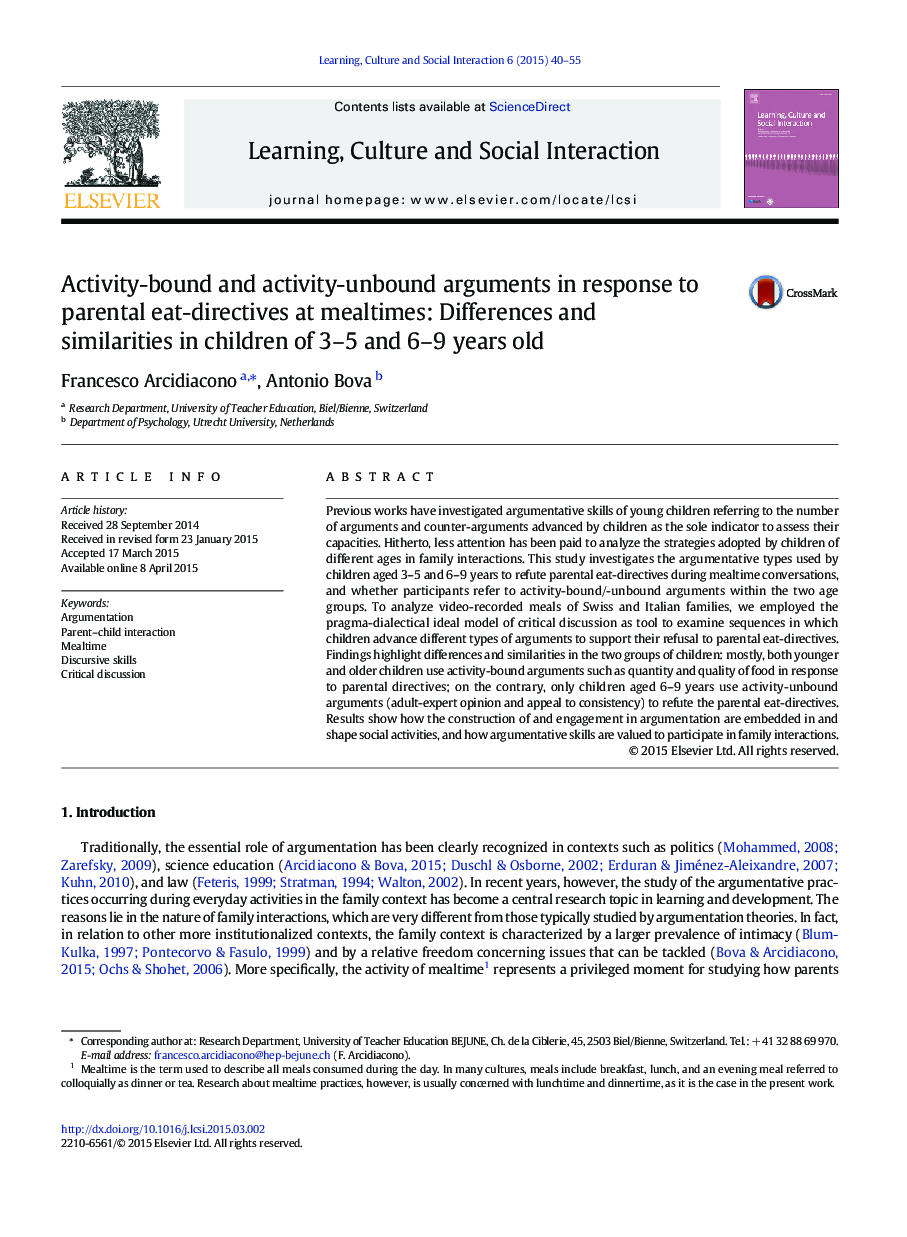| کد مقاله | کد نشریه | سال انتشار | مقاله انگلیسی | نسخه تمام متن |
|---|---|---|---|---|
| 364385 | 621058 | 2015 | 16 صفحه PDF | دانلود رایگان |
Previous works have investigated argumentative skills of young children referring to the number of arguments and counter-arguments advanced by children as the sole indicator to assess their capacities. Hitherto, less attention has been paid to analyze the strategies adopted by children of different ages in family interactions. This study investigates the argumentative types used by children aged 3–5 and 6–9 years to refute parental eat-directives during mealtime conversations, and whether participants refer to activity-bound/-unbound arguments within the two age groups. To analyze video-recorded meals of Swiss and Italian families, we employed the pragma-dialectical ideal model of critical discussion as tool to examine sequences in which children advance different types of arguments to support their refusal to parental eat-directives. Findings highlight differences and similarities in the two groups of children: mostly, both younger and older children use activity-bound arguments such as quantity and quality of food in response to parental directives; on the contrary, only children aged 6–9 years use activity-unbound arguments (adult-expert opinion and appeal to consistency) to refute the parental eat-directives. Results show how the construction of and engagement in argumentation are embedded in and shape social activities, and how argumentative skills are valued to participate in family interactions.
Journal: Learning, Culture and Social Interaction - Volume 6, September 2015, Pages 40–55
